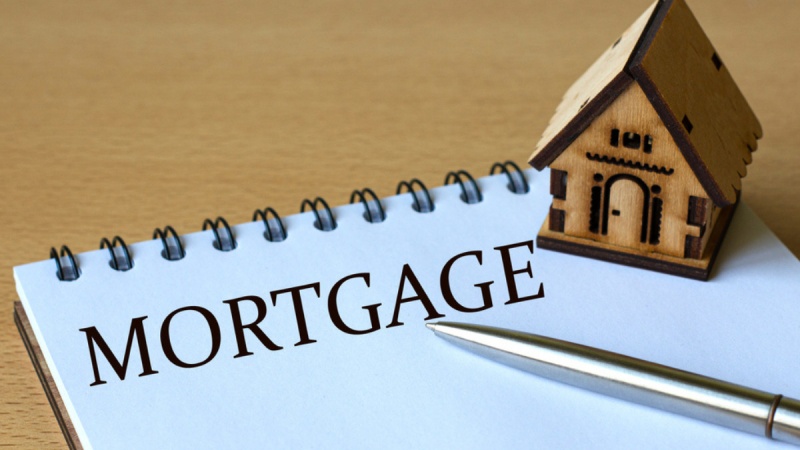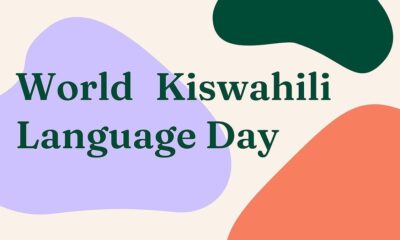Real Estate
Know Everything about Mortgages: Which Home Loan Type Is Right for You?

You’ll have to make a lot of decisions when looking for a house, such as what neighborhood you want to live in and how much you can afford. The kind and duration of your mortgage is another essential decision.
There are various kinds of mortgages, and each has its own special qualities and advantages. Your credit score, down payment, location, and other factors all play a role in choosing the best kind of home loan.
When you work with a mortgage lender, they can thoroughly examine your personal financial situation and suggest a loan type that would be best for you.
The most popular loan types, the requirements for approval, and the ideal candidates for each type of mortgage can all be found in this guide.
What is a mortgage?
A mortgage is a financial agreement in which a lender lends you money to purchase a home in exchange for an interest rate. As the borrower, you consent to making monthly payments to cover the principal amount owed on the loan as well as the interest that has accumulated.
A mortgage is a specific type of secured loan, which means that the house itself serves as the collateral. The lender may foreclose and take possession of the property if you fail to make loan repayments as agreed.
What is refinancing?
The process of getting a new mortgage in place of your existing one is called refinancing. To pay off your previous loan, you will obtain a completely new mortgage with a new interest rate and loan term. Borrowers frequently refinance their loans to reduce their interest rate or monthly payments. Homeowners can borrow more than their initial loan balance and get the difference in cash with a cash-out refinance.
What is a loan term?
The amount of time over which you will repay the remaining amount on a mortgage is known as the loan term. Mortgage payment plans typically last between 10 and 30 years, with 30-year terms being the most common.
Your monthly payment is directly affected by your loan term. Your monthly payment will decrease as your loan term lengthens. On the other hand, longer terms typically have higher interest rates, so you’ll ultimately pay more interest because it will take longer to repay the loan.
What is an interest rate?
An interest rate is an additional aspect of every mortgage. Lenders charge interest in exchange for money borrowed. Your interest rate will determine how much your loan will cost overall and how much your monthly payment will be.
You will pay the same interest rate for the duration of the loan, with the majority of mortgages having fixed interest rates. On the other hand, some mortgages have adjustable rates that are subject to change over time.
The Federal Reserve’s interest rate plan and the state of the economy both affect mortgage interest rates.
What are the different types of loans?
Fixed-rate mortgages
The most popular type of conventional home loan is a fixed-rate mortgage, which has monthly interest payments that remain constant for the term of the loan. Your interest rate will only fluctuate if you refinance your mortgage. The principal and interest components of your monthly loan payment stay the same since your interest rate doesn’t fluctuate.
Adjustable-rate mortgages
With adjustable-rate mortgages, the interest rate is fixed for a predetermined period of time and then varies on a regular basis after that. With a 5/1 ARM, for example, your interest rate will be fixed for the first five years and will then fluctuate annually after that. ARMs often have lower initial rates than conventional fixed-rate mortgages, but they are subject to fluctuation over time by a benchmark.
Jumbo loans
A jumbo loan is a type of mortgage used to finance properties that are too costly for conventional loans. The conforming loan limits, which change based on your location, are exceeded by jumbo loans. Jumbo loan requirements are typically more stringent. A 20% down payment and a credit score of at least 700 are typically required by lenders. Rates on jumbo loans may be fixed or flexible.
Balloon mortgages
A balloon mortgage is a type of loan that has low or no monthly payments for a predetermined period of time, followed by a balloon payment—a large, one-time payment—usually five or seven years later. These loans carry a high level of risk. At the end of your loan, you will have a sizable debt, and you risk losing your house if you are unable to make the payments. Conventional buyers don’t often use balloon mortgages; instead, real estate flippers and investors do.
What types of mortgages do I qualify for?
1. Conventional loan
What it is: A loan without government backing is known as a conventional loan. This is the most typical kind of loan. Conventional loans are available in terms of 10, 15, 20, and 30 years, with the 30-year term being the most common. Conventional loans fall into one of two categories: conforming or nonconforming.
What you need: A 620 credit score and a 3% down payment are sufficient to qualify for a conventional loan. You may need more money for a down payment the lower your credit score is. You will also have to pay for private mortgage insurance up until the point at which you own 20% of your home if your down payment is less than 20%.
Who it’s good for: Since conventional loans account for the majority of home loans (75%), most people can benefit from them. It can be applied to investment properties as well as your primary residence.
Who should skip it: Borrowers who fall short of the required minimum credit score.
2. FHA loan
What it is: A loan that is guaranteed by the Federal Housing Administration is known as an FHA loan. If a borrower defaults, the private lenders who provide these loans receive mortgage insurance from the FHA. FHA loans are available in 15- and 30-year terms, and online lenders, credit unions, and neighborhood banks can handle them.
What you need: Your credit score must be 580 or higher to qualify for the minimum 3.5% down payment required for FHA loans. You can still be eligible if it’s between 500 and 580, but you’ll need to put down at least 10%. A mortgage insurance premium is also necessary for FHA loans, and it safeguards the lender if you default on the loan. The length of your MIP could be 11 years or the entire loan term, depending on your loan amount and down payment.
Who it’s good for: Borrowers who lack the creditworthiness to be approved for a conventional loan.
Who should skip it: Borrowers with good or excellent credit would be eligible for a conventional loan.
3. VA loan
What it is: Those who meet specific service requirements can apply for VA loans, whether they are current or former military personnel. Private lenders are providing these loans, which are supported by the US Department of Veterans Affairs.
What’s required: There are no minimum credit score requirements or down payment requirements for VA loans set by the Department of Veterans Affairs. Lenders may, however, impose different standards. In addition, an upfront funding fee (which varies from 1.25 to 3.3%) that must be paid at closing is mandated by the VA.
Who it’s good for: Individuals who fulfill the service requirements established by the Department of Veterans Affairs or who are currently serving in the military.
Who should skip it: Borrowers who are not in the military. Additionally, VA loans are only available for primary residences, so you will need to consider other options if you require funding for an investment property or a second home.
4. USDA loans
What it is: USDA loans are provided by private lenders and supported by the US Department of Agriculture. They are only accessible in specific locations across the United States because they are intended for low-income borrowers in rural areas.
What you need: A USDA loan does not require a down payment. The majority of lenders demand at least a fair credit score, even though the USDA doesn’t set a minimum. Your household income must not exceed 115% of the area median household income for you to be eligible for a USDA loan. Lastly, a loan guarantee fee is required of USDA lenders and is typically charged to the borrower.
Who it’s good for: families in rural areas who fit the income and location requirements.
Who should skip it: Borrowers who either have enough credit or don’t meet the location and income requirements to be eligible for a conventional loan.
How can I get the best deal on a mortgage?
For most people, buying a home is the most costly purchase they will ever make, and interest alone can drive up that price by hundreds of thousands of dollars. It’s crucial to look for the best mortgage offer when you’re shopping around to lower your initial and recurring monthly expenses.
The following are some essential strategies to help you get the best mortgage rate:
- Boost your credit score: One of the key factors that lenders consider when determining mortgage rates is your credit score. The better rate you’ll be eligible for, the higher your credit score. In the long run, you can save a significant amount of money by raising your credit score, even slightly, before purchasing a home.
- Increase your down payment: Borrowers who make larger down payments typically receive lower interest rates from lenders. A lender will probably view you as a lower risk since you have more invested in the deal. Furthermore, because you have a smaller loan to repay, a larger down payment lowers your monthly payment.
- Pay mortgage points: Lenders may use mortgage discount points as a tool to assist you in bringing down your interest rate. When you apply for a loan, you pay a lump sum upfront, and your lender will reduce your interest rate in return.
- Reduce your debt-to-income ratio (DTI): The percentage of your gross monthly income that is allocated to debt repayment is your DTI. There is a maximum DTI on most mortgages. A lower DTI may help you be eligible for a loan, but it may also help you get a better interest rate.
- Shorten your loan term: Shorter loan terms typically result in lower interest rates from lenders. You will save money on interest throughout your loan if you choose a shorter loan term, even though not everyone can due to the large increase in monthly payments.
- Compare lenders: Don’t just accept a mortgage offer from the first lender you speak with when applying for one. Rather, shop around, obtain rate quotes from several lenders, compare their offers, and select the lender that provides the best value.
- Research buyer assistance: Both first-time and repeat homebuyers can benefit from a variety of assistance programs that can cover closing costs, your down payment, and other expenses.
-

 Sports4 weeks ago
Sports4 weeks agoFIFA Club World Cup 2025: Complete List of Qualified Teams and Groups
-

 Sports3 weeks ago
Sports3 weeks agoAl Ahly vs Inter Miami, 2025 FIFA Club World Cup – Preview, Prediction, Predicted Lineups and How to Watch
-
Health2 weeks ago
Back to Roots: Ayurveda Offers Natural Cure for Common Hair Woes
-

 Tech2 weeks ago
Tech2 weeks agoFrom Soil to Silicon: The Rise of Agriculture AI and Drone Innovations in 2025
-

 Sports4 weeks ago
Sports4 weeks agoFIVB Men’s Volleyball Nations League 2025: Full Schedule, Fixtures, Format, Teams, Pools and How to Watch
-

 Startup3 weeks ago
Startup3 weeks agoHow Instagram Is Driving Global Social Media Marketing Trends
-

 Sports3 weeks ago
Sports3 weeks agoWorld Judo Championships 2025: Full Schedule, Date, Time, Key Athletes and How to Watch
-

 Sports2 weeks ago
Sports2 weeks agoFIBA 3×3 World Cup 2025: Full Schedule, Preview, and How to Watch



















